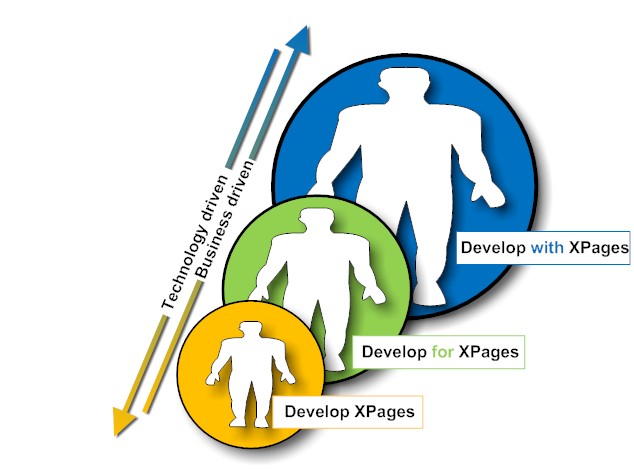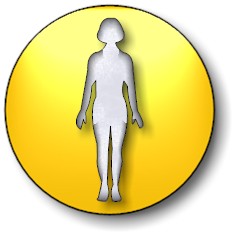What XPages developer are you?
There are 11 types of XPages developers, but you must understand binary to get that joke. There is an ongoing discussion what does it take to be an XPages developer and what skills are required. Regardless what development platform you use, web development is much harder than client development. You are dealing with runtimes you can't control (a.k.a what browser users use), network uncertainties (will that application be accessed via a shaky GSM connection or in a high latency network?) and a confusing set of languages that play together but have their own query mechanisms and syntax quirks: HTML, CSS, JavaScript. In a client only environment you usually get away with one language. Most modern IDE try to shield developers from this complexity but at some point in time are all subject to a leaky abstraction, so it is better to learn the languages of your trade. Nevertheless depending on one's personal aptitude there are different roles to be filled when developing XPages:

Turns out that there are actually 100 types. I forgot the all encompassing Notes Goddesses:


- Develop XPages - a.k.a Phil and gang.
The team that makes XPages possible. Deep rooted in Java, JSF, NAPI and JNI they provide us with the SSJS engine, the XPages runtime and the implementation of various standards like JSF or JavaScript (a.k.a ECMA Script / ISO/IEC 16262). Besides occasionally writing a bookthey provide the core set of generic custom controls
- Develop for XPages - a.k.a The Nathan & Niklas club.
They extend the platform, build mobile extensions, provide an application transformer or run custom control contests. They understand XPages deeply, including its roots in JSF and the control life cycle. They code both in Java and JavaScript and have some dojo for breakfast - Develop with XPages - a.k.a. The rest of us.
We understand users' needs, business requirements, workflow processes and the corporate development life cycle. We know how to distinguish between users' needs and wants and how to translate a vague descriptions of "make it work" into a concrete application design. Our favourite mode of operation is to drag & drop ready made custom controls and sprinklePixi dustSSJS between them as glue. We don't have time for the deep understanding both other groups need. We love JavaScript since we don't need to mentally reset when switching between front-end and back-end code (something our JSP, PHP and ASP peers envy us for). We are the largest group, but possibly the most quiet one too. For quite some of us developing software is just a way of making a living
Turns out that there are actually 100 types. I forgot the all encompassing Notes Goddesses:

Posted by Stephan H Wissel on 04 June 2011 | Comments (3) | categories: XPages